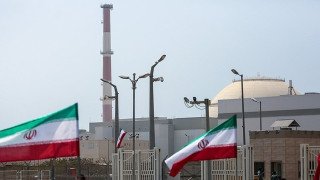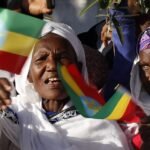Across Africa, health officials are sounding the alarm: the continent is currently in the grip of its worst cholera epidemic in 25 years, according to the Africa Centres for Disease Control and Prevention (Africa CDC).
This outbreak is proving to be one of the deadliest in recent memory, exposing deep vulnerabilities in water and sanitation systems in many countries.
Since early 2025, the Africa CDC has documented more than 300,000 suspected or confirmed cases of cholera, and the death toll has tragically surpassed 7,000. These numbers represent a rise of over 30 percent compared to the previous year, underscoring how rapidly the disease is spreading in places where infrastructure is already fragile.
Among the hardest-hit countries are Angola and Burundi. In Angola, poor access to clean and safe water is fueling transmission, while in Burundi the outbreak is aggravated by high population density and limited sanitation resources. In interviews, local health workers say that cholera patients are arriving in clinics with severe dehydration, and that some remote areas lack even basic supplies for treating the disease.
Jean Kaseya, Director General of Africa CDC, described the outbreak as not just a public health emergency, but a symptom of deeper, long-term structural problems. “Without water, we cannot control cholera,” he said during a recent press briefing. He stressed that fragile water infrastructure and ongoing conflict in several nations are allowing the disease to multiply unchecked.
In many of the affected regions, especially in conflict-affected countries, residents are living in displacement camps or informal settlements. Overcrowding, poor sanitation, and limited access to clean water make these places especially vulnerable to fast-spreading bacterial infections. The Africa CDC has flagged that in such environments, cholera can spread quickly and overwhelm local health services.
On the response side, governments, regional bodies, and international partners are mobilizing. A continental cholera response plan was launched in Zambia in August 2025, aiming to strengthen surveillance, ramp up treatment capacity, and coordinate vaccination efforts. Health officials hope that oral cholera vaccines, combined with community hygiene programs and treatment centers, can slow the outbreak.
Also Read; Samia Names New Ministers to Strengthen Government
Yet despite these efforts, experts warn that vaccines alone will not be enough. Poverty, conflict, displacement, and broken sanitation systems remain at the root of the crisis. As one UNICEF report put it, “this is a disease of inequality”—a problem deeply tied to the lack of safe drinking water and infrastructure.
There are some signs of hope: according to Africa CDC and local health authorities, the number of new cases is beginning to dip in countries like the Democratic Republic of the Congo, South Sudan, and Somalia. But many relief workers are warning that without sustained political commitment, the outbreak could reignite.
For families in affected communities, the impact of the epidemic is deeply personal. Many are living in fear of losing loved ones, especially children, who are particularly vulnerable to severe dehydration. Health workers describe heartbreaking scenes of parents desperately trying to rehydrate their ill children while battling a shortage of basic supplies such as rehydration salts.
Public health leaders are urging governments and international donors to act now — not just to contain the current outbreak, but to address the systemic challenges that make cholera such a persistent threat in Africa. They argue that long-term investment in clean water, sanitation and hygiene infrastructure is critical if the continent is to avoid repeating this kind of human tragedy.







